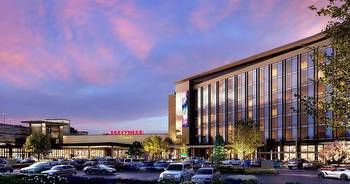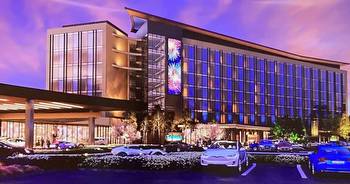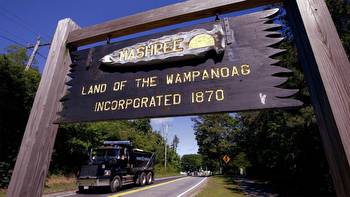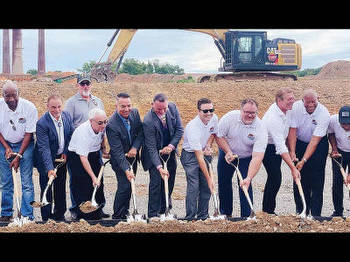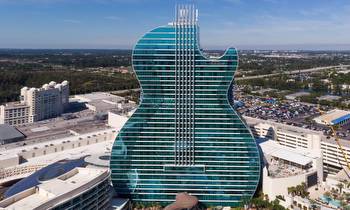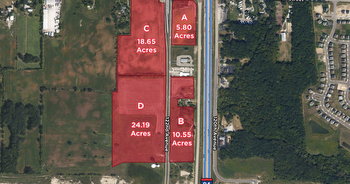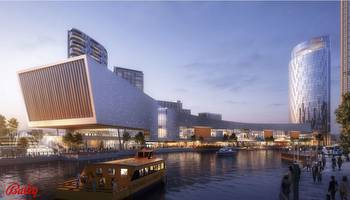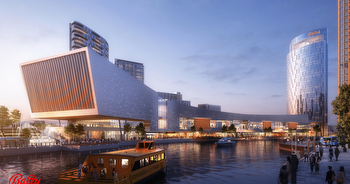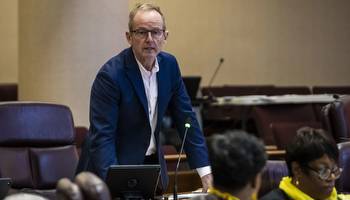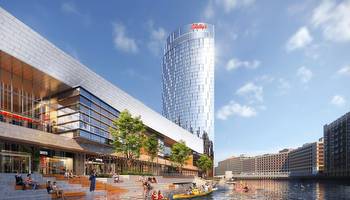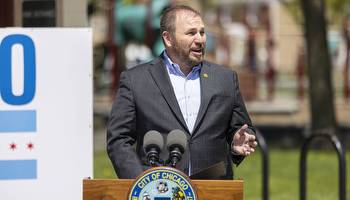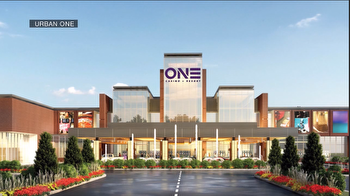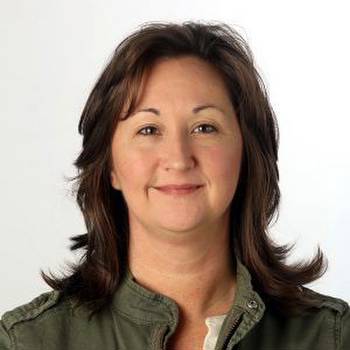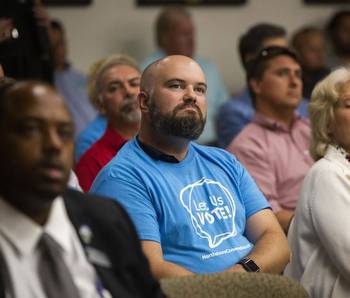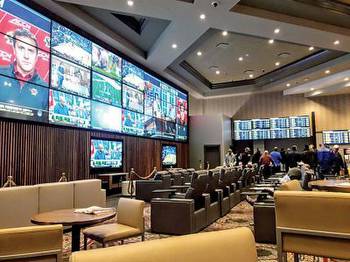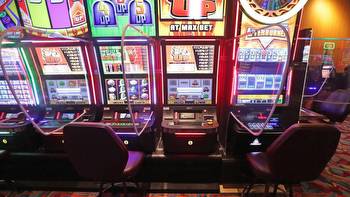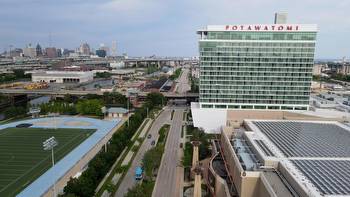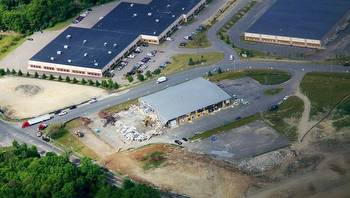Kenosha City Council approves Hard Rock casino proposal
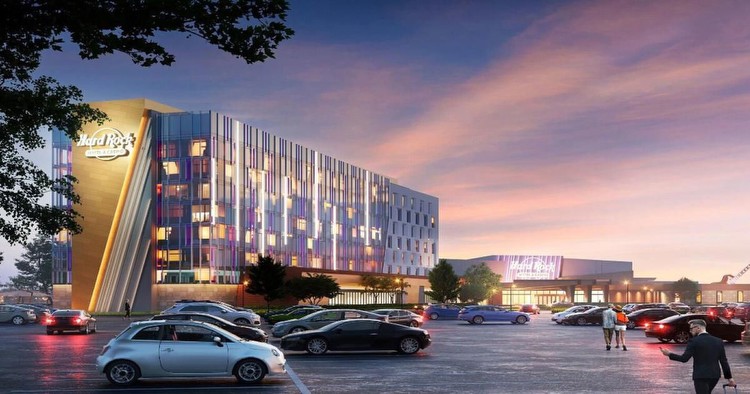
The Kenosha City Council voted decisively Wednesday night in favor of a multi-million dollar intergovernmental agreement with the Menominee Tribe’s gaming authority, a major milestone that helps pave the way for a future Hard Rock casino on the city’s west side in the coming years.
Alderpersons voted 11-6 during a packed regularly scheduled City Council meeting inside the Municipal Building, 625 52nd St., for the agreement. The meeting lasted over three hours, with more than two dozen public commenters. A simple majority was required.
Alds. Rocco LaMacchia, David Bogdala, Ruth Dyson, Daniel Prozanski, Anthony Kennedy, Keith Rosenberg, Curt Wilson, Brandi Ferree, Jack Rose, Bill Siel and Rollin Pizzala voted for it.
Alds. Dominic Ruffalo, Holly Kangas, Kelly MacKay, David Mau, Eric Haugaard and Jan Michalski voted against it.
Prozanski said “everyone is entitled to their own opinion but not their own facts.”
Prozanski said worries expressed by his colleagues and some outspoken opponents of the casino regarding possible increases in crime, the lowering of property values and Hard Rock’s commitment to seeing the effort fully through are way overblown.
“Sixty acres is being purchased. We’re not giving anybody 60 acres,” Prozanski said. “It’s a privately funded operation. ... This is a big deal.”
Prozanski said he hoped his colleagues “understand the weight of this moment” and voted to support it.
Kennedy, who recently held a public listening session about the proposal, said he supports the casino and that the public has had adequate time to ask questions about it and express any concerns.
“My job — as I’ve told you over and over again — is to maintain or improve quality-of-life for my constituents,” Kennedy said, adding that many of the constituents he spoke with support it.
“This is the step that we need to start the process,” Kennedy said, adding that he still believes it will take years to see the project through to completion.
Bogdala successfully added an amendment during the meeting that he worked on with Wilson. It aims to prohibit alderpersons, the mayor or the city administrator from working at the casino while in office or for two years after leaving office.
On the other hand, Ruffalo, who represents District 16, the area where the casino would be constructed, said it wasn’t easy to vote against it.
“What is gaming going to look like 10 years from now?” Ruffalo said. “Gaming can be done anywhere ... on your phone, in your living room. That seems to be the future of gaming in my mind. The further you are away from this casino, the more that you like it.”
Ruffalo said that “at first he was a ‘yes’ vote” until he read the intergovernmental agreement, adding he would have liked additional listening sessions and a thorough traffic study, among other reasons.
Still, Ruffalo said the “biggest reason he’s voting ‘no’” is because, while dealing with a close loved one’s serious illness in recent days, he felt inspired to vote against it.
Kangas remained firmly opposed.
“This doesn’t sit right with me,” Kangas said, adding that she believes most residents of her north side district are either against or indifferent to the casino. “Many, many people have come to me and said that they don’t know enough about it. ... People feel nervous about it, and I can’t blame them.”
Kangas said she believes Hard Rock also “has a history” of going back on its promises and leaving communities in limbo.
“The people of the 4th District have asked me to be a ‘no’ vote tonight,” Kangas said.
Mau voted against it because he said the government should not favor specific businesses.
“We can’t sit here in a room and central plan for everybody,” Mau said. He also questioned whether Bogdala’s amendment had enough teeth to deter possible corruption.
Mayor responds
Mayor John Antaramian said he was happy with the outcome after the meeting.
“I think this will be a positive impact for the community on a long-term basis,” Antaramian told the Kenosha News. “We’ll go through the process and see how this goes. The compact is a good compact. It’s similar to what we’ve passed in the past and it’s been vetted numerous times.”
Wednesday’s vote came after the City Council voted unexpectedly in November to defer a vote on the agreement until this week so council members had more time to review the matter and hear from any concerned constituents or area residents.
Members of the tribe’s gaming authority and legislature are proposing a $360 million complex that, if fully developed, would include a hotel, restaurants and entertainment venue. The tribe is working with Florida-based developer Hard Rock International to develop about 60 acres of land just west of Interstate 94 that was formerly owned by the Village of Bristol.
Under the agreement, the site would be exempt from local property taxes, but the city would receive payments from the tribe based on gaming revenues.
According to Matt Schuffert, Hard Rock’s regional president, total annual revenues are expected to range from $250 million to $295 million.
The city would receive about 3% in “net win” payments on a quarterly basis to support governmental operations. The agreement also spells out minimum escalating annual payments from $100,000 to $2.5 million if net win revenues fall short of the minimums for a given year. The proposed payments would be made over a 20-year period and would be negotiated every 10 years thereafter.
The agreement calls for an annual $750,000 payment toward public schools in the city when net win payments exceed $2 million; $500,000 annually beginning the third year to the city’s public museums and to support a home ownership program. The contract also provides for $1 million toward the purchase of advanced life support vehicles and an annual payment of a $500,000 over a six year period to finance building a police, fire and public works outpost near the casino complex.
Proponents, including labor unions, also estimate the project would create 800 construction jobs during a two-year build and 1,000 permanent jobs once the casino is in full operation.
Under the intergovernmental agreement, the tribe intends to apply to the U.S. Department of the Interior to place the land proposed for the casino in federal trust for the purposes of casino gambling.
Without Wednesday’s approval from the City Council, the effort would have effectively been killed.
The County Board of Supervisors is scheduled to revisit it’s own intergovernmental agreement with the tribe on Jan. 16.
During an interview with the Kenosha News last month, leaders of the tribe said a County Board vote against the county’s intergovernmental agreement would not necessarily mean the end of the effort.
Hard Rock International had previously spent years planning to partner with the Menominee Tribe to develop an $800 million hotel and casino at the former site of Dairyland Greyhound Park in Kenosha. The years-long plan, however, was rejected by then-Gov. Scott Walker, a Republican, in 2015.
It’s not yet clear what Gov. Tony Evers, a Democrat, will do with this latest proposal if it gets to his desk.
In accordance with federal law, the governor has sole, final authority to approve or reject such proposals.
Before it gets to the governor, however, it must be approved by the federal Bureau of Indian Affairs, which tribal leaders hope to have this year.
“We feel the atmosphere is right for us to bring that project forward again,” Joey Awonohopay, chairman of the Menominee Kenosha Gaming Authority and a tribal legislator, told the Kenosha News last month. “We’re looking at an estimated 1,500 gaming devices and slot machines, 55 table games, a sports book. In that package, we’re looking at a 150-key hotel room with a hotel, a spa and several different restaurant options for people as they visit the facility.”
Tribal Chairwoman Gena Kakkak said in November that the Menominee Tribe would use the proceeds from gaming to address “significant needs” on the reservation, which is ranked “at the bottom of health outcomes in Wisconsin.”
Public comments
Numerous members of the public spoke about the matter Wednesday before and after the meeting.
John Hawley, a business agent with Laborers Local 113, said he supports the project.“The jobs are great, but we’re also looking out at the entertainment possibilities,” Hawley said. “We don’t have a conference center, so we could also have conferences. Just the entertainment aspect is something positive.”
Hawley said he believes the vast majority of Kenosha residents also support it.
“If you take every slot machine in the City of Kenosha, there’s more slot machines for everybody who has an entertainment license, liquor license than the Menominee are going to put in their casino,” he told the Kenosha News. “I was also for it in 2015.”
Hawley, of Kenosha, said he also frequents Hard Rock casinos when traveling and appreciates them.
On the other hand, Steven Guion, who is running against Ruffalo, expressed deep concerns about the casino during the citizens’ comments portion of the meeting. He said crime, taxes and congestion would become worse if a casino is constructed.
“We got crime problems, public safety (issues) and numerous other issues where this can only exacerbate what is already a high-tax problem west of the (Interstate),” he said, adding there are already casinos in neighboring states and cities.
“How many more casinos do we need?” he asked.
After the meeting, Awonohopay said he was relieved.
“We were very, very excited. We were counting the votes along with everyone in the council room,” Awonohopay told the Kenosha News. “The first thing that went through my mind is that we made it through Step 1 of the four steps that need to happen. It feels good.”
A 1998 city-wide referendum approved Class III Indian gaming 57% to 43%.
A November 2004 county-wide referendum approved Class III Indian gaming in the City of Kenosha 56% to 44%.








